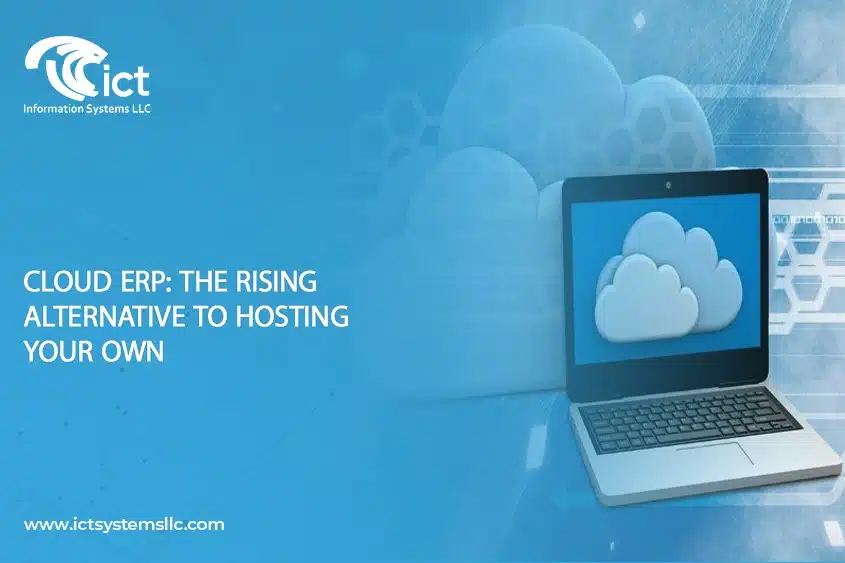ERP (Enterprise Resource Planning) software is common to most businesses. They depend on ERP systems to help them integrate and coordinate data from all of their different departments. Erp System solutions are often hosted on a company’s internal server infrastructure and need ongoing maintenance and updates to remain current. As the name implies, cloud ERP, like SaaS, is hosts in the cloud (Software as a Service.) Cloud-based ERP, unlike conventional ERP software, helps businesses exchange information throughout departments by using the cloud rather than centralized server infrastructure. Accounting Software Solutions In Dubai, inventory and order management, human resources, customer relationship management (CRM), and other critical business processes are all integrated into one full ERP system through cloud ERP software.
A shared database that facilitates various components used by various business units is important to Cloud ERP systems (and on-premises ERP systems). Employees from various departments can now access and rely on the same data for their individual needs. And Cloud ERP makes this possible without the need for a large (and often expensive) on-premises server infrastructure.
Cloud ERP software’s components:
On-premises and cloud ERP systems both provide a centralizes database is uses to store information about the business transactions such that it can be easily obtains and exchanges between modules. Having a single version of a purchase order, for particular, written curriculum continuity across modules and divisions, reduces errors, and simplifies reporting. Basic accounting and finance functions, and also some relevant systems along with financial analytics, forecasting, and reporting, are the only “heart” modules that are essential to all ERP systems, despite of implementation model. Human capital management (HCM) and customer relationship management (CRM) modules are available in certain ERP products (CRM). Procurement, inventory management, and order management modules are commonly used for both on-premises and cloud ERP systems, as these roles are probably the most common form of organizations and sectors, instead of whether the service is a monetary or non – monetary good or a service.
Following are the Benefits of ERP Software:
-
Accessibility:
Users of cloud-based ERP systems can access real-time business data from any location and on any computer. This means that workers around the company, regardless of business unit or position, are operating with the same data and can make decisions more quickly and confidently.
-
The Speed of implementation:
The implementation period of every new ERP solution is one of the most significant roadblocks, which can have a direct impact on company downtime and time to value—in one survey, around half of companies said the deployments were completing on time. A cloud-based ERP system can typically get a company up and running faster than an on-premises ERP system because it does not involve choosing and establishing hardware or an IT staff.
-
Actualization and adaptability:
Like the cloud-base ERP can expand with an enterprise, it could also be more easily tailored to meet specific business needs, either from the start or as a company expands and develops. Although on-premises ERP software may be customizes, those modifications are bound to the existing version of the Accounting Software Companies In Dubai and could be challenging to implement in future versions, specifically if integrations were builtup in-house.
-
Infrastructure and Maintenance Expenses:
One of the most significant advantages of a cloud-base Erp system is the net cost savings, that begin with implementation. A company’s upfront costs for on-premises ERP include server purchases, database development, initial deployment, consultancy, IT personnel, security, and backup. As a business expands, it will incur increased costs for repairs, specialist in house or on-call services, enhancements and improvements, as well as additional servers. Cloud ERP is usually 30% less expensive than on-premises ERP.
Businesses escape initial infrastructure costs and also some additional costs for IT personnel, service, security, and upgrades because the cloud ERP provider hosts and maintains the programme on its own servers. IT support is provided by the provider on an ongoing basis.
-
Disaster Recovery, Security, and Enforcement:
Data protection is one of the most important benefits of an ERP system. After all, data is at the heart of the ERP definition. Collaboration within an organization is improves by sharing data within functional silos like customer support, sales, marketing, and business growth. Trying to control who can see and modify documents is the other side of universal data access. To ensure the protection of your files, ERP solutions have built-in controls.
Furthermore, ERP platforms have a single input mechanism, which lets them maintain a high degree of data protection. While combining data from different systems can lead to source disputes, providing a centralized repository of data can help improve the quality, consistency, and protection of your company’s data.
-
Collaboration and Workflow Improvements:
Collaboration is an important aspect of any successful company. However, businesses still find their teams working in silos because teamwork takes more time and effort. Collaboration, on the other hand, is a breeze with ERP tech. By giving workers access to the information they need whenever they need it. An ERP platform simplifies the process of communicating with one another. This enables real-time project notifications and improved coordination within the organization. Each employee has on-demand access to the full company’s wealth of data via an ERP system already in place. Allowing them to see the big picture. As a result, the workers will have the resources they need to make proactive choices while also feeling more respected.
-
Business Processes That Are Standardizes:
The majority of ERP systems are builtup using industry best practices. These tries-and-true procedures provide significant advantages to organizations of all sizes. It also enables companies to standardize their own processes and systems, boosting productivity and performance even more. These procedures produce predictable results, allowing you to develop your business operations over time. Many procedures are now automates, which reduces errors and probably costs. As a result, there is less tension between branches and better synergy.
-
Supply Chain Management:
An ERP system helps supply chain management in a number of ways for businesses. That deal with the movement of physical inventory and output. Shorter lead times, more on-time deliveries, and other benefits result from this increase. All of which support the company’s overall activity and performance. Through enhanced supply chain, inventory management, procurement, and more. The supply chain will become stronger and much more flexible thanks from a well ERP platform. A simplified supply chain will also help you minimize costs and produce innovative new products. Giving the company the competitive advantage like ICT Systems LLC giving. With it needs to maintain a competitive edge.








































